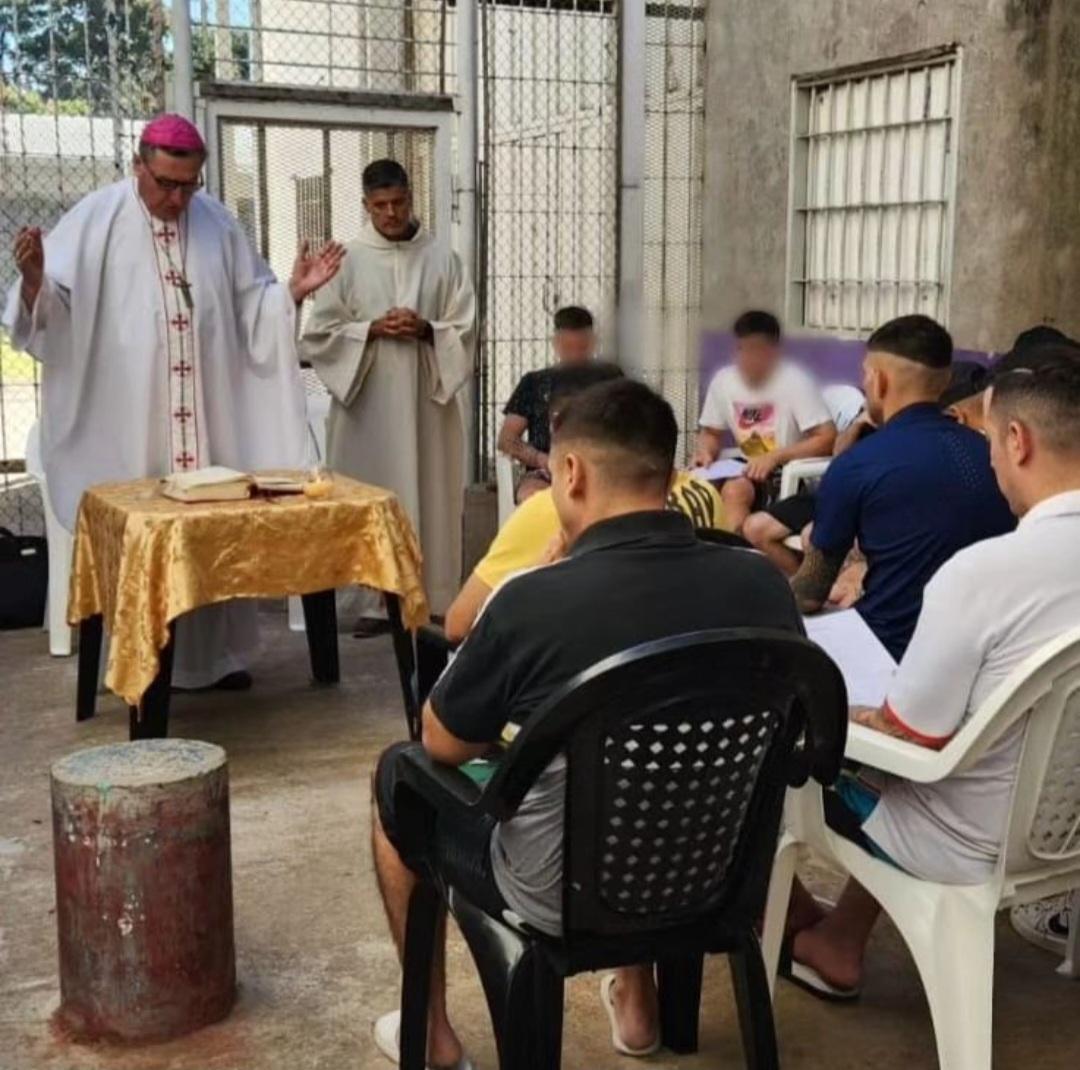SÃO PAULO, Brazil – As random attacks by criminal organizations caused the deaths of transportation workers and led them to paralyze much of the normal life in the Argentinian city of Rosario, Pope Francis sent a video calling for measures that not only combat crime but “strengthen communities.”
The wave of violence began a few weeks ago, after Santa Fe’s governor Maximiliano Pullaro published on social media pictures of shirtless inmates sitting on the floor of one of Rosario’s prisons, surrounded by armed guards.
The scene, reminiscent of the crackdown on organized crime promoted by El Salvador’s President Nayib Bukele over the past two years, intensified the idea that both the new provincial government and the new federal administration – headed by President Javier Milei – are carrying out a plan to curtail the actions of the gangs that control crime inside and outside of the penal system.
In fact, Security Minister Patricia Bullrich visited El Salvador in December in order to learn about Bukele’s program. Bullrich has been implementing alongside governors a number of measures to limit organized crime, including the application of more restrictions to detainees, like a zero tolerance policy for the use of cellphones.
Those actions apparently sparked the wave of violence that has frozen Rosario over the past few weeks, say analysts. The coordinated attacks against civilians – till now, two taxi drivers, a bus driver and a gas station employee were killed – are seen by many as a form of putting pressure on the government.
“Rosario has been facing growing violence over the past two decades. Today, it has a homicide rate that is five times higher than that of the country as a whole,” Father Fabian Belay told Crux.
Belay, who is in charge of much of the Rosario Church’s work in poor neighborhoods, said that there are more than 40 gangs operating drug trafficking in the city – and their leaders keep planning their actions from the prisons where they’re serving their sentences.
“Many gang members are in prison, but most of them are poor young men. Those groups’ finances must be intercepted. That’s how things will begin to change,” he said.
Although inmates have not promoted riots in Rosario’s penitentiaries, there’s an atmosphere of concern among the detainees over the new restrictions applied by the authorities, Father Fernando Lardizabal, who heads Rosario’s prison pastoral commission, told Crux.
“We keep visiting them normally. Our presence there also has the goal of ensuring their human dignity,” Lardizabal said.
According to Belay, federal security forces, including Army troops, were sent to Rosario and have been patrolling the city in order to avoid violence from escalating even more. That dynamic is not new, he said.
“Over the past 10 years, on several occasions those forces were sent here, the situation was controlled, and then they went away, so crime would grow again. That’s why it’s important to act on other fronts as well,” he said, echoing Pope Francis’s message.
In a video sent by him to the city on March 26, the pope emphasized that the current crisis wouldn’t be possible without the complicity “of a sector of the political, police, judicial, economic and financial powers” and that “it’s necessary to rehabilitate politics, which is a very high calling.”
“All political sectors are called to travel the great path of consensus and dialogue to generate laws and public policies that accompany a process of recovery of the social fabric,” the pope added.
On Mar. 28, the pope sent a brief letter to Santa Fe’s Vice Governor Gisela Scaglia, who had sent him a letter two days before in order to describe the local government’s programs to deal with social vulnerabilities and violence.
In the message, Francis thanked Scaglia for her description of the governmental programs and said he was “impressed by the sense of governing as a service.”
Belay said the Church has been taking part in discussions of the civil society about the current crisis. Its message has been the idea of strengthening community networks, especially those which help minors.
The Archdiocese of Rosario has nine centers for children and teenagers located in poor neighborhoods, besides seven community centers for drug addicts and other facilities, offering support to 1,200 people. The idea is to give support to young people and help them avoid cooptation by gangs.
“Over the years, we saw numerous cases of young people who abandoned their addiction and got back to study and to work. We know that it’s possible,” Belay said.
On Mar. 28, Archbishop Eduardo Eliseo Martín of Rosario visited a penitentiary and celebrated Holy Mass with the detainees.
“Our mission is to take solace and the word of God to them. We have to make ourselves present,” Lardizabal said.
That’s part of what Belay calls an “integral intervention” to deal with the social crisis.
“We’ve been living isolated in the city. We need to generate networks and collaborate,” he said.











